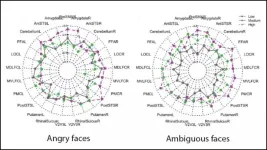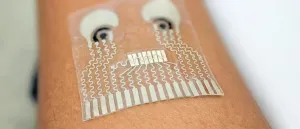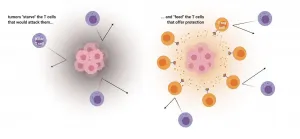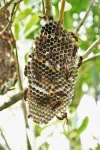Mid-life cardiovascular disease prevention may protect against later dementia
Study results show atherosclerosis in mid-life can impact areas of the brain impacted by dementia
2021-02-15
(Press-News.org) Employing cardiovascular disease prevention strategies in mid-life may delay or stop the brain alterations that can lead to dementia later in life, according to a study in the Journal of the American College of Cardiology.
Atherosclerosis, or buildup of fats, cholesterol and other substances in and on artery walls, is the underlying cause of most cardiovascular diseases, which is the leading cause of death around the world. Dementia is also among the top causes of death and disability around the world, with 50 million people currently living with dementia. The presence of atherosclerosis has been linked to cognitive impairment in advanced stages of the disease, but little is known about how they influence each other, especially since both can be asymptomatic for long periods of time earlier in life.
Using 18F-fluorodeoxyglucose (FDG)-positron emission tomography (PET) scans of 547 participants from the Progression of Early Subclinical Atherosclerosis study, researchers sought to determine the association between brain metabolism, subclinical atherosclerosis and cardiovascular risk factors in asymptomatic, middle-aged adults. They found that cardiovascular risk is associated with brain hypometabolism, including the cerebral areas known to be affected in dementia. Hypertension was the modifiable cardiovascular disease risk factor with the strongest association.
According to researchers, these results underscore the need to control cardiovascular disease risk factors early in life to potentially reduce the brain's later vulnerability to cognitive dysfunction.
INFORMATION:
For an embargoed copy of the full study, contact Nicole Napoli at nnapoli@acc.org.
The American College of Cardiology envisions a world where innovation and knowledge optimize cardiovascular care and outcomes. As the professional home for the entire cardiovascular care team, the mission of the College and its 54,000 members is to transform cardiovascular care and to improve heart health. The ACC bestows credentials upon cardiovascular professionals who meet stringent qualifications and leads in the formation of health policy, standards and guidelines. The College also provides professional medical education, disseminates cardiovascular research through its world-renowned JACC Journals, operates national registries to measure and improve care, and offers cardiovascular accreditation to hospitals and institutions. For more, visit END
ELSE PRESS RELEASES FROM THIS DATE:
2021-02-15
In a new study out of University of California San Diego School of Medicine, researchers found a drug used for heart failure improves symptoms associated with postural orthostatic tachycardia syndrome, otherwise known as POTS. This complex, debilitating disorder affects the body's autonomic nervous system, causing a high heart rate, usually when standing.
Writing in the February 15, 2021 online issue of the Journal of the American College of Cardiology, study authors investigated the drug ivabradine and its effects on heart rate, quality of life and plasma norepinephrine levels in persons living with POTS. Norepinephrine is a stress hormone and neurotransmitter. In blood plasma, it is used as a measure of sympathetic nervous system activity. Trial participants experienced a reduction in ...
2021-02-15
Young men with lower testosterone levels throughout puberty become more sensitive to how the hormone influences the brain's responses to faces in adulthood, according to new research published in JNeurosci.
During prenatal brain development, sex hormones like testosterone organize the brain in permanent ways. But research suggests that testosterone levels during another developmental period -- puberty -- may have long-lasting effects on brain function, too.
Liao et al. examined the relationship between puberty testosterone levels and the brain's response to faces. Liao's team recruited 500 men around age 19 who had been participants in the Avon Longitudinal Study of Parents and ...
2021-02-15
PITTSBURGH, Feb. 15, 2021 - By capitalizing on a convergence of chemical, biological and artificial intelligence advances, University of Pittsburgh School of Medicine scientists have developed an unusually fast and efficient method for discovering tiny antibody fragments with big potential for development into therapeutics against deadly diseases.
The technique, published today in the journal Cell Systems, is the same process the Pitt team used to extract tiny SARS-CoV-2 antibody fragments from llamas, which could become an inhalable COVID-19 treatment for humans. This approach has the potential to quickly identify multiple potent nanobodies that target different parts of a pathogen--thwarting ...
2021-02-15
What The Study Did: Data from four studies of children and adolescents exposed to major U.S. hurricanes were pooled to examine posttraumatic stress symptoms after those events and the factors associated with them.
Authors: Betty S. Lai, Ph.D., of Boston College in Chestnut Hill, Massachusetts, is the corresponding author.
To access the embargoed study: Visit our For The Media website at this link https://media.jamanetwork.com/
(doi:10.1001/jamanetworkopen.2020.36682)
Editor's Note: The article includes conflict of interest and funding/support disclosures. Please see the article ...
2021-02-15
Scientists say they have discovered a potential new target for immunotherapy of malignant brain tumors, which so far have resisted the ground-breaking cancer treatment based on harnessing the body's immune system. The discovery, reported in the journal END ...
2021-02-15
RIVERSIDE, Calif. -- Materials having excess electrons are typically conductors. However, moiré patterns -- interference patterns that typically arise when one object with a repetitive pattern is placed over another with a similar pattern -- can suppress electrical conductivity, a study led by physicists at the University of California, Riverside, has found.
In the lab, the researchers overlaid a single monolayer of tungsten disulfide (WS2) on a single monolayer of tungsten diselenide (WSe2) and aligned the two layers against each other to generate large-scale moiré patterns. The atoms in both the WS2 and WSe2 layers are arranged in a two-dimensional honeycomb lattice with a periodicity, ...
2021-02-15
Engineers at the University of California San Diego have developed a soft, stretchy skin patch that can be worn on the neck to continuously track blood pressure and heart rate while measuring the wearer's levels of glucose as well as lactate, alcohol or caffeine. It is the first wearable device that monitors cardiovascular signals and multiple biochemical levels in the human body at the same time.
"This type of wearable would be very helpful for people with underlying medical conditions to monitor their own health on a regular basis," said Lu Yin, a nanoengineering Ph.D. student at UC San Diego and co-first author of the study published Feb. 15 in Nature Biomedical Engineering. "It would also serve as a great tool for remote patient monitoring, ...
2021-02-15
PITTSBURGH, Feb. 15, 2021 - A paper published today in Nature shows how chemicals in the areas surrounding tumors--known as the tumor microenvironment--subvert the immune system and enable cancer to evade attack. These findings suggest that an existing drug could boost cancer immunotherapy.
The study was conducted by a team of scientists at UPMC Hillman Cancer Center and the University of Pittsburgh School of Medicine, led by Greg Delgoffe, Ph.D., Pitt associate professor of immunology. By disrupting the effect of the tumor microenvironment on immune cells in mice, the researchers were able to shrink tumors, prolong survival and increase sensitivity to immunotherapy.
"The majority of people don't respond to immunotherapy," said Delgoffe. "The reason ...
2021-02-15
Researchers have found a way to use light and a single electron to communicate with a cloud of quantum bits and sense their behaviour, making it possible to detect a single quantum bit in a dense cloud.
The researchers, from the University of Cambridge, were able to inject a 'needle' of highly fragile quantum information in a 'haystack' of 100,000 nuclei. Using lasers to control an electron, the researchers could then use that electron to control the behaviour of the haystack, making it easier to find the needle. They were able to detect the 'needle' with a precision of 1.9 parts per million: high enough to detect a single quantum bit in this large ensemble.
The technique makes it possible to send highly fragile ...
2021-02-15
[Images and video available: see notes to editors]
Wasps provide crucial support to their extended families by babysitting at neighbouring nests, according to new research by a team of biologists from the universities of Bristol, Exeter and UCL published today [15 February] in Nature Ecology and Evolution.
The findings suggest that animals should often seek to help more distant relatives if their closest kin are less in need.
Dr Patrick Kennedy, lead author and Marie Curie research fellow in the School of Biological Sciences at the University of Bristol, said: "These wasps can act like rich family members lending a hand to their second cousins. If there's not much more you can do to help your immediate family, you can ...
LAST 30 PRESS RELEASES:
[Press-News.org] Mid-life cardiovascular disease prevention may protect against later dementia
Study results show atherosclerosis in mid-life can impact areas of the brain impacted by dementia





